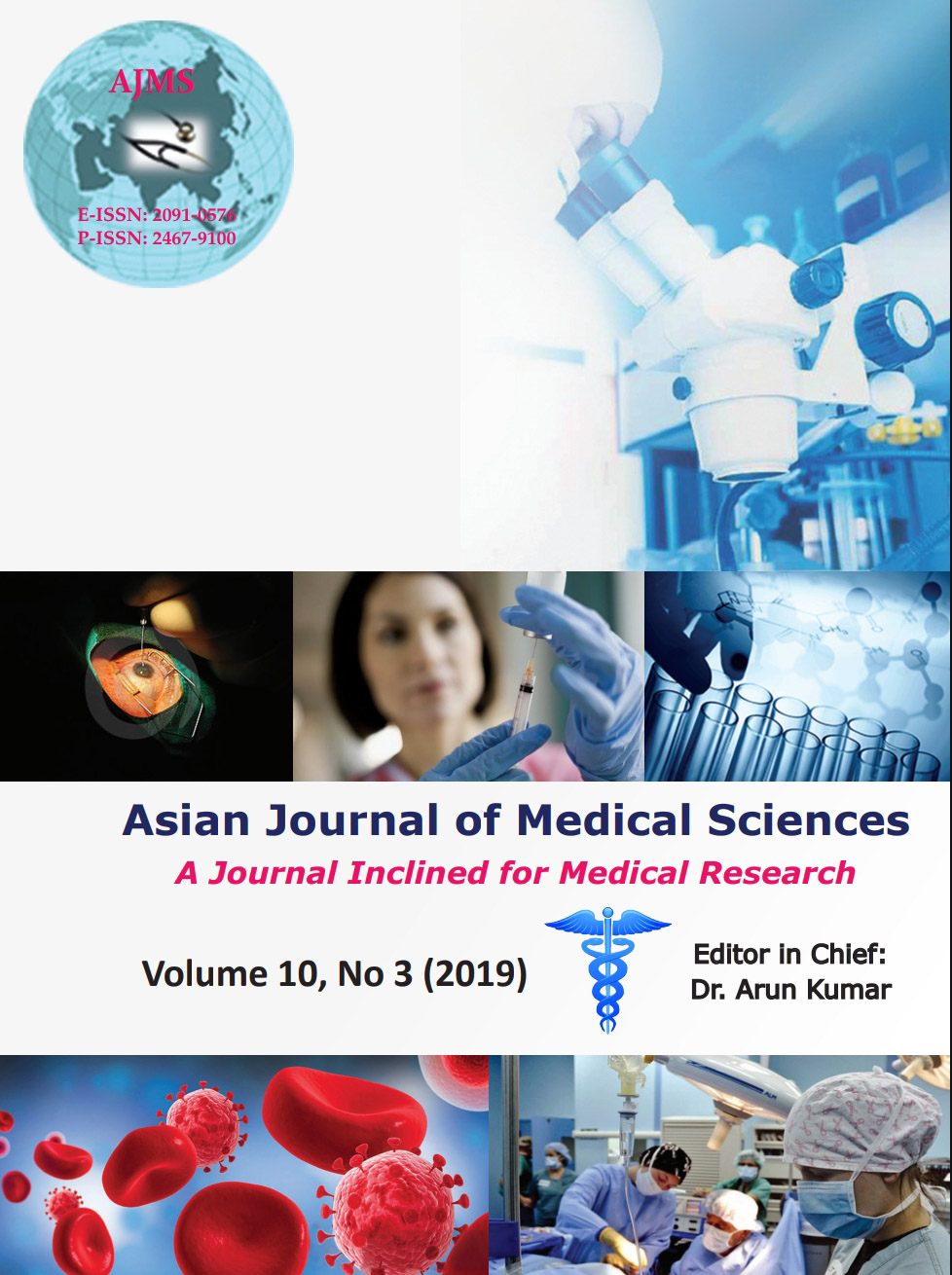Comparative analysis on association of fasting and postprandial dyslipidemia with risk of atherosclerosis in early rheumatoid arthritis
Keywords:
Early rheumatoid arthritis, Dyslipidemia, Post prandial, Inflammation, AtherosclerosisAbstract
Background: Rheumatoid arthritis (RA) patients have higher cardiovascular risk due todyslipidemia, inflammation etc. The serum lipid levels obtained after 12 hour fasting will not truly reflect atherosclerotic risk associated as non fasting state predominates in routine life.
Aim and Objectives: We investigated the frequency of dyslipidemia in early RA cases and healthy controls in both fasting and postprandial state and analyzed the impact of postprandial lipid profile over fasting lipid levels in prediction of atherosclerotic risk.
Materials and Methods: This case-control study was conducted at UCMS and GTB Hospital, Delhi. 127 RA cases diagnosed according to revised ACR, 2010 with age and sex matched 127 controls were recruited. Lipid profile parameters were analyzed by commercial kits on auto analyzer. RF, anti-CCP, TNF-α and CRP were measured by ELISA. For statistical analysis unpaired t test and Pearson’s correlation was used.
Result: The mean disease duration was 7± 2.16 months. There were significant increased levels of TC, LDL-C, and TAG with reduced serum HDL-C in RA cases. Atherogenic ratio of TC/HDL-C and LDL-C/HDL-C were significantly high in RA. Postprandial lipid analysis revealed significant difference for TAG and HDL-C in RA cases. TAG had a significantly positive correlation with TNF-α (r=0.234) which improved in postprandial state(r=0.559). Significantly negative correlation of HDL-C with ESR (r=-0.221) also improved (r=-0.421) postprandially.
Conclusions: Atherogenic dyslipidemia was a significant finding in patients of early RA. Dyslipidemia screening can be recommended in postprandial state.
Downloads
Downloads
Published
How to Cite
Issue
Section
License
Authors who publish with this journal agree to the following terms:
- The journal holds copyright and publishes the work under a Creative Commons CC-BY-NC license that permits use, distribution and reprduction in any medium, provided the original work is properly cited and is not used for commercial purposes. The journal should be recognised as the original publisher of this work.
- Authors are able to enter into separate, additional contractual arrangements for the non-exclusive distribution of the journal's published version of the work (e.g., post it to an institutional repository or publish it in a book), with an acknowledgement of its initial publication in this journal.
- Authors are permitted and encouraged to post their work online (e.g., in institutional repositories or on their website) prior to and during the submission process, as it can lead to productive exchanges, as well as earlier and greater citation of published work (See The Effect of Open Access).




